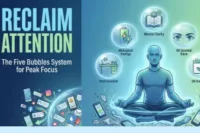Are You Emotionally Constipated? Signs, Causes, & Why It’s Time to Unblock Your Feelings
Published: 12/07/2025
Do you ever feel a heavy, unshakable weight in your chest, or a constant knot in your stomach that refuses to let go, even when there’s no clear reason for it? Or perhaps there are moments when the big emotions—like joy, sadness, or even frustration—seem to slip through your fingers, leaving you feeling disconnected from yourself and others. Many of us are silently battling with feelings we can’t seem to express, a state we often refer to as “emotional constipation.
You’re not alone in this struggle. Whether it’s due to stress, past trauma, or simply a pattern of bottling things up, it’s easy to fall into the trap of emotional numbness, where it becomes difficult to feel, process, or release emotions.
At its core, emotional constipation isn’t about being “emotionless”—it’s about feeling stuck. It’s the inability to recognize, express, and process the emotions that naturally arise in us. These emotions build up, leading to a sense of discomfort, numbness, or even frustration. When we suppress feelings or don’t allow ourselves the space to release them, they can cause significant emotional and physical distress.
In this blog post, we’ll help you identify the signs of emotional constipation, uncover the causes behind this emotional blockage, and explain why it’s crucial to unblock your feelings for a healthier, more fulfilling life. By the end of this journey, you’ll have a clearer understanding of how emotional repression impacts your well-being—and how taking small steps to unblock your feelings can lead to greater emotional freedom and vitality.
Let’s begin by exploring the signs that may indicate you’re emotionally constipated and how to recognize when these feelings are building up inside.
What Exactly is “Emotional Constipation”?
Emotional constipation is a powerful metaphor that captures the sensation of feeling emotionally “stuck.” Just like physical constipation, where waste accumulates in the body and causes discomfort, emotional constipation involves the buildup of suppressed feelings that create internal blockages. These emotional “backups” result in feelings of heaviness, frustration, and sometimes even pain. When emotions are not acknowledged or processed, they don’t disappear—they pile up, leading to a state of emotional dysfunction.

Imagine trying to function normally while dealing with a full stomach, but you can’t release anything. That’s the impact emotional constipation has: you’re unable to release or express what’s inside, leaving you feeling “blocked,” stuck, or even numb.
More Than Just “Not Feeling”
It’s important to note that emotional constipation isn’t about simply “not feeling” emotions. It’s about feeling disconnected from your emotions—being unable to access, express, or process them. While you may still experience emotions, they can feel muted, difficult to label, or overwhelming in their intensity when they finally do surface. You may even find yourself unable to identify what you’re feeling, let alone express it. This lack of emotional flow leads to a state of internal tension, similar to holding something in, both mentally and physically, without the ability to release it.
This emotional repression doesn’t mean you’re heartless or emotionless—it just means that you’ve learned to suppress or avoid certain emotions because they feel too uncomfortable or unsafe to process.
Types of Emotional Constipation (Briefly)
Emotional constipation can take various forms, and it’s not always easy to recognize. There are two primary types of emotional blockages: general emotional repression and specific emotional avoidance.
- Repression: This is when you suppress all emotions, pushing them down so deeply that they’re difficult to access, leading to emotional numbness. It can feel like a fog or emptiness, where no emotion feels fully alive.
- Specific Emotional Avoidance: In some cases, we don’t block out all emotions, but rather, we avoid certain ones that feel too painful. This is often seen in people who, for example, avoid sadness or anger, because those emotions may be linked to past trauma or experiences that they don’t want to revisit. As a result, you may end up emotionally “stuck” because you’re selectively allowing only certain emotions to surface, leaving others trapped beneath the surface.
The Telltale Signs: Are You Emotionally Constipated?
Emotional constipation isn’t always obvious, and its signs can be quite subtle. Many people experience these signs without fully recognizing what’s going on, often misinterpreting them as just “bad moods” or “stress.” However, these feelings may be deeper indicators of emotional blockages. Recognizing the signs of emotional constipation can help you start the process of unblocking your feelings and regaining emotional balance.
It’s important to understand that these signs may manifest in different ways, and they might not always fit neatly into one category. They can appear emotionally, psychologically, or even physically, making it easy to overlook or misunderstand them.
Emotional & Psychological Signs
- Feeling Numb or Disconnected (from self and others)
One of the most common signs of emotional constipation is feeling emotionally numb. This might look like being disconnected from your own feelings or unable to engage with others on a deeper level. You might go through the motions of daily life, but something feels off—like you’re living on autopilot. - Difficulty Expressing Feelings (even positive ones)
Do you struggle to express even the good emotions? If you have trouble expressing joy, love, or excitement, it may be a sign of emotional repression. Emotional constipation often makes it challenging to connect with or share these feelings, leaving you feeling isolated. - Frequent Mood Swings or Unexplained Irritability/Anger
Emotional constipation can cause mood fluctuations, where you feel irritated or angry for no apparent reason. These emotional shifts can be confusing, especially when you can’t trace them back to any clear event or cause. - Anxiety, Depression, or Chronic Stress without Clear Cause
Often, when emotions are suppressed, they can manifest as feelings of anxiety, depression, or chronic stress. You may feel weighed down or anxious without knowing why, or experience deep sadness without a clear reason. - Difficulty with Intimacy or Forming Deep Connections
When emotions are repressed, it’s difficult to connect with others on a meaningful level. Emotional constipation can make intimacy challenging, whether with a partner, friends, or family. You may feel emotionally distant or unable to be vulnerable. - Avoiding Conflict or Important Conversations
If you consistently avoid confrontation or difficult conversations, it could be a sign of emotional avoidance. Emotional constipation may cause you to shy away from situations that require you to confront your feelings, leading to unresolved issues. - Using Distractions to Avoid Feelings
Overworking, excessive screen time, or turning to substances are all common ways people try to distract themselves from their emotions. While these may offer temporary relief, they do not address the root cause of emotional constipation and only prolong the issue. - Lack of Empathy (difficulty understanding others’ feelings)
Emotional constipation can make it hard to understand or empathize with others. When you’re disconnected from your own emotions, it’s difficult to be in tune with others’ feelings, leading to misunderstandings and weakened connections.
Physical Manifestations
In addition to emotional and psychological signs, emotional constipation often manifests physically. The body and mind are deeply connected, and when one suffers, the other often follows suit.

Here are some common physical signs of emotional blockages:
- Chronic Headaches or Migraines
Persistent emotional stress that’s not processed can result in tension headaches or even migraines. These physical symptoms may be your body’s way of expressing the emotional tension you’re holding inside. - Stomach Issues (IBS, indigestion)
The gut is often called the “second brain,” and unresolved emotions can manifest as digestive issues like IBS, bloating, or indigestion. Emotional constipation can lead to chronic discomfort in the stomach area, as your body processes stress and tension. - Muscle Tension (neck, shoulders, jaw)
Holding in emotions can lead to muscle tension, particularly in areas like the neck, shoulders, and jaw. If you often find yourself with tight muscles or even jaw clenching, it could be a sign of emotional buildup. - Fatigue or Low Energy
Carrying emotional weight can drain your energy. Emotional constipation may leave you feeling fatigued, lethargic, or physically drained, making it hard to find the motivation to do everyday tasks. - Sleep Disturbances (insomnia, restless sleep)
Stress from unprocessed emotions can lead to sleep problems. You may struggle with insomnia, wake up frequently during the night, or have restless, unrefreshing sleep because your mind is busy processing emotions that haven’t been dealt with. - Weakened Immune System
Long-term emotional stress can negatively impact the immune system, leaving you more susceptible to illness. Emotional constipation can contribute to a weakened immune response, making it harder for your body to fight off infections.
Research shows that unresolved emotions can have a direct impact on the body’s systems. According to a study published by Psychology Today, long-term emotional suppression can cause chronic physical ailments, especially in the digestive and muscular systems. Understanding the mind-body connection is crucial in addressing emotional constipation.
Self-Assessment
If many of these signs resonate with you, you’re not alone. Our emotions often manifest in unexpected ways, and recognizing the signs is the first step in unblocking them. Take a moment to reflect: do any of these signs align with what you’re experiencing?
Unpacking the “Why”: Common Causes of Emotional Constipation
Emotional constipation doesn’t typically happen by choice; rather, it’s a learned coping mechanism that develops over time. Often, it’s a result of habits and patterns that we develop early on in life, as well as societal influences that shape how we handle emotions. In many cases, emotional constipation arises when emotions are seen as something that should be controlled or avoided, rather than fully experienced and processed. It’s important to remember that these emotional blockages are often unconscious—people rarely choose to “shut down” their feelings. Instead, they develop these patterns as a means of dealing with past pain, fear, or societal pressure.
Let’s explore some of the most common causes of emotional constipation.
Childhood & Upbringing
- “Big Boys Don’t Cry” or “Good Girls Are Always Happy” Messaging
Many of us grow up hearing phrases like “big boys don’t cry” or “good girls are always happy.” These messages, often unintentionally passed down by parents or caregivers, teach us that certain emotions—especially sadness or anger—are not acceptable. As a result, children may learn to repress these emotions, believing that they are signs of weakness or inadequacy. This early emotional conditioning can set the stage for emotional constipation later in life. - Lack of Emotional Literacy Taught by Parents/Guardians
Emotional literacy is the ability to recognize, understand, and express one’s emotions. However, many people grow up in households where emotions weren’t openly discussed or expressed. If emotional vocabulary isn’t taught early on, children may struggle to identify what they’re feeling as they grow older, making it harder to process and express emotions in a healthy way. Without this foundational understanding, emotional constipation becomes more likely. - Trauma or Adverse Childhood Experiences (ACES) Where Emotions Felt Unsafe to Express
For some, childhood trauma or adverse experiences—such as emotional or physical abuse, neglect, or witnessing violence—can create an environment where expressing emotions is seen as unsafe. In such cases, children may suppress their feelings to avoid further harm. These unresolved childhood experiences can contribute to long-term emotional constipation, as individuals grow into adulthood without learning how to safely process and express their emotions.
Research shows that early attachment issues and emotional invalidation can lead to difficulties with emotional regulation later in life. Studies by John Bowlby and Mary Ainsworth on attachment theory demonstrate that children who don’t receive consistent emotional support from caregivers may struggle with emotional expression in adulthood, often leading to emotional constipation.
Societal & Cultural Factors
- Cultural Norms Around Emotional Expression
Different cultures have different expectations around emotional expression. In some societies, emotions are seen as a sign of vulnerability or weakness. For example, in cultures where stoicism is valued or where emotional restraint is the norm, people are often discouraged from expressing their true feelings, leading to emotional repression. In contrast, collectivist cultures may emphasize the importance of emotional harmony for the greater good, often at the expense of individual emotional needs. - Professional Environments Discouraging Emotion
Many workplaces and professional environments prioritize productivity and logic, often making emotional expression seem out of place. In these settings, showing emotion, whether joy or frustration, can be perceived as unprofessional. As a result, people may suppress their emotions to conform to workplace expectations, leading to emotional constipation over time. - Social Media Pressure for “Positive Vibes Only”
In today’s digital world, social media often promotes a facade of constant happiness, success, and positivity. The overwhelming pressure to maintain a curated “perfect” image can lead to emotional repression, as people feel the need to suppress negative emotions and present only the idealized version of themselves. This can contribute significantly to emotional constipation, as individuals deny or hide their true feelings to fit into a virtual standard.

Fear & Vulnerability
- Fear of Rejection or Being Judged
A common cause of emotional constipation is the fear of rejection or judgment. When we are afraid that others won’t accept us or will criticize us for expressing our emotions, we tend to hold them in. This fear can prevent us from being open and vulnerable, leading to an emotional buildup. - Fear of Overwhelming Emotions
Many people avoid their feelings because they’re afraid of being overwhelmed. The intensity of emotions like sadness or anger can seem too much to handle, so individuals may shut them down in an attempt to control them. This emotional avoidance can lead to blockages that, if left unchecked, result in emotional constipation. - Fear of Losing Control
Some individuals worry that if they start to feel emotions, they might lose control. The fear of emotional chaos or unpredictability can lead them to suppress their feelings entirely. This fear-based repression can cause deep emotional constipation, making it harder to navigate even everyday emotions. - Past Negative Experiences When Expressing Feelings
If someone has been punished or ridiculed for expressing emotions in the past, they may learn to bottle them up. This type of past emotional invalidation leads to a learned habit of emotional suppression, creating barriers to healthy emotional expression in the future.
Lack of Emotional Skills
- Not Knowing How to Identify or Name Emotions
If you’ve never learned how to identify or name your emotions, it’s incredibly difficult to process and release them. Without emotional literacy, people often feel “stuck” or confused when they try to engage with their emotions, leading to emotional constipation. - Not Having Healthy Coping Mechanisms Learned
Emotional constipation often arises when individuals have never learned healthy ways to cope with their feelings. Without strategies to process emotions, like mindfulness or therapy, people resort to avoidance or repression, leading to emotional blockages that remain unresolved.
Why It’s Time to Unblock Your Feelings: The Crucial Impact
Unresolved emotions don’t simply fade away. When emotions are suppressed or ignored, they don’t disappear—they fester, causing a range of mental, physical, and relational issues. The longer emotions are blocked, the greater the risk that they will manifest in harmful ways, affecting not only your well-being but also your ability to connect with others and live a fulfilled life.

Unblocking your feelings isn’t just a suggestion—it’s crucial for your overall health and happiness. Let’s explore the profound impact that emotional constipation can have on different aspects of your life.
This isn’t just a philosophical idea; it’s a fundamental truth recognized by pioneers in psychology. As the renowned psychoanalyst Sigmund Freud famously asserted:
Unexpressed emotions will never die. They are buried alive and will come forth later in uglier ways. Sigmund Freud (Renowned pioneer of psychoanalysis)
Impact on Mental Health
- Increased Risk of Anxiety and Depression
One of the most immediate and severe impacts of emotional constipation is the risk of developing anxiety and depression. When feelings are repressed, the mind can’t process them in a healthy way, leading to feelings of constant tension, worry, and sadness. This emotional buildup can lead to anxiety, where fear and stress dominate your thoughts, or depression, where emotional numbness and hopelessness take over. - Chronic Stress and Burnout
Holding onto emotions can result in chronic stress, as your mind and body are constantly working to suppress and manage unresolved feelings. Over time, this constant emotional strain can lead to burnout, leaving you mentally and physically exhausted. You may feel drained, overwhelmed, and unable to recharge because your emotions are draining your energy. - Development of Maladaptive Coping Mechanisms
When we can’t express our feelings healthily, we often turn to harmful coping mechanisms to escape emotional discomfort. This can include substance use, overworking, or disordered eating, among other behaviors. These maladaptive mechanisms only offer temporary relief and fail to address the root cause of emotional constipation, making it harder to heal in the long term.
Impact on Physical Health
- Aggravation of Physical Symptoms
Emotional constipation isn’t just a mental or psychological issue—it also affects your body. The stress from suppressed emotions can cause physical symptoms such as headaches, digestive issues, and muscle tension. The longer these emotions are suppressed, the more intense these physical symptoms can become, further exacerbating your overall discomfort. - Weakened Immune System
Emotional stress has a direct effect on the immune system, weakening the body’s ability to fight off infections. Research shows that prolonged emotional strain from unresolved feelings can lower your immune response, making you more vulnerable to illness. When emotions are held in, your body’s ability to cope with external stressors diminishes, leading to a compromised immune system. - Increased Inflammation and Stress on Body Systems
Chronic emotional stress can lead to increased inflammation, which in turn can put a strain on various body systems, including the cardiovascular system. This inflammatory response, caused by the body’s attempt to process long-held emotions, increases stress on organs and tissues, potentially leading to serious health issues.
Studies have shown that emotional stress can trigger the release of stress hormones like cortisol, which in turn impacts bodily functions such as metabolism, immune response, and brain function. Understanding the connection between emotional blockages and physical health reinforces the importance of emotional release for overall well-being.
Impact on Relationships
- Difficulty Forming Authentic Connections
Emotional constipation can lead to difficulties in forming deep, authentic connections with others. When you’re unable to fully express your emotions, it’s hard to let others see the real you, creating a barrier to genuine intimacy. This emotional distance can result in feelings of isolation and a lack of meaningful relationships. - Communication Breakdowns
Suppressing emotions often leads to communication breakdowns. You may struggle to articulate your feelings or misunderstand others’ emotional cues, which can lead to frustration and confusion in relationships. Without open communication, conflicts go unresolved, and connections weaken. - Resentment and Passive-Aggression
When emotions are not properly addressed, they can turn into resentment or passive-aggressive behavior. Unexpressed feelings of anger, frustration, or hurt can build up, creating an undercurrent of tension in your relationships. This passive aggression can strain relationships, often causing more harm than good. - Feeling Isolated or Misunderstood
Emotional constipation can lead to feelings of being misunderstood or disconnected from others. When you’re not sharing your emotions, it’s easy to feel like no one truly gets you, which can lead to loneliness and isolation.
Impact on Personal Growth & Fulfillment
- Inability to Learn from Experiences
Emotions are integral to personal growth. When we fail to process and understand our emotions, we miss the opportunity to learn from our experiences. Emotional constipation prevents us from fully reflecting on past events, making it harder to grow and move forward in life. - Feeling Stagnant or Unfulfilled
Without emotional release, it’s easy to feel stuck. Life can seem repetitive, with no sense of progress or fulfillment. The inability to process emotions creates a sense of stagnation, as unresolved feelings build up and hinder personal growth and development. - Hindered Decision-Making
Emotions play a key role in decision-making. When we suppress emotions, our ability to make informed, confident decisions becomes impaired. Emotional constipation clouds judgment, leading to indecisiveness, poor choices, and a lack of clarity in personal and professional matters. - Lack of Joy and Spontaneity
When emotions are blocked, it becomes harder to experience the full range of feelings, including joy, excitement, and spontaneity. Emotional constipation stifles the natural flow of emotions, making it harder to feel fully alive or embrace the present moment.
The Imperative for Change
Unblocking your emotions isn’t just a recommendation for a better life—it’s an essential step for improving your well-being. Unresolved emotions don’t disappear; they accumulate, leading to mental, physical, and relational damage. To live a healthier, more fulfilling life, emotional release is crucial. Only by confronting and processing your emotions can you regain emotional freedom and create a life of greater peace, joy, and connection.
Taking the First Steps: Beginning to Unblock
The journey to emotional freedom isn’t something that happens overnight, but the good news is, it’s possible. Just like physical constipation, emotional blockages can be addressed with the right tools and techniques. The first step is acknowledging that you’re emotionally constipated and recognizing that unblocking your feelings is essential for a healthier, more fulfilling life. It might seem challenging at first, but with time and patience, you can start to untangle the emotional knots and let your feelings flow freely again.
Let’s explore some simple yet powerful practices that can help you take the first step toward emotional release today.
Simple Practices to Start Today
- Awareness: Acknowledging Your Emotions
The first step in unblocking your feelings is to become aware of them. Take time each day to check in with yourself. Notice how you’re feeling throughout the day—both physically and emotionally. Are you feeling tense, anxious, or disconnected? Are you holding something back without realizing it? One simple way to develop awareness is to perform a body scan: start from the top of your head and work your way down to your toes, paying attention to any areas where you feel tightness or discomfort. This can help you connect with your emotions and identify any blockages. - Journaling Prompts
Journaling is a powerful tool for emotional expression and release. Here are 2-3 simple journaling prompts to help you identify your feelings and begin to process them:- What emotion am I feeling right now? (Be specific—anger, sadness, frustration, etc.)When did I last feel this emotion? (Try to pinpoint an event or situation that triggered it.)What do I need in order to feel better right now? (This can guide you toward self-care practices or deeper emotional work.). For more journaling tips and techniques, check out our post on “How to Use Journaling for Emotional Release.”
- Mindful Breathing
Mindful breathing is a quick and effective way to bring your attention to the present moment and start releasing emotional tension. Simply close your eyes, take a deep breath in for a count of four, hold for four, and exhale for a count of four. Repeat this several times, focusing solely on the sensation of your breath. This technique can help calm your mind, alleviate stress, and create space for your emotions to flow more freely. If you want to dive deeper into mindfulness, check out our post on “Mindfulness Practices for Emotional Health.“ - Allowing the Emotion
One of the most important steps in unblocking your feelings is learning to allow the emotion to exist without judgment. It’s okay to feel discomfort, sadness, anger, or even fear. Often, we push these emotions away because they feel uncomfortable or overwhelming, but when we allow ourselves to feel them fully, we start the process of healing. Remember, emotions are a natural part of the human experience—they come and go, and they don’t define you. The key is to acknowledge them without trying to push them away.
The journey to unblocking your feelings begins with a fundamental shift in how we perceive our emotions. As acclaimed mindfulness teacher and psychologist Tara Brach teaches:
When we are able to be with our emotions, we find that they are not solid. They are not us. They are simply energies that move through usTara Brach (Leading mindfulness teacher and psychologist)
When to Seek Professional Help
While these practices are effective for starting the process of emotional unblocking, sometimes the emotions are too big to handle alone. If you’ve experienced trauma, deep emotional pain, or if your emotions are significantly affecting your day-to-day life, it may be time to seek professional help. A therapist or counselor can provide guidance and support as you work through complex emotions and develop healthier emotional coping mechanisms. Remember, asking for help is a sign of strength, not weakness.
Qualified therapists and counselors are trained to help individuals navigate emotional blockages and develop emotional resilience. They can offer tailored strategies to address your unique emotional needs and provide a safe space for healing. If you’re unsure where to start, consider looking for licensed mental health professionals who specialize in emotional regulation, trauma, or mindfulness-based therapies.
From Stuck to Free: Your Emotional Wellness Awaits
Throughout this post, we’ve explored the concept of emotional constipation—a state where emotions build up inside, leading to discomfort, disconnection, and dysfunction. We’ve discussed the signs of emotional blockages, the causes behind them, and why it’s so crucial to unblock these feelings in order to regain emotional balance. The longer these emotions are held in, the greater the impact they have on your mental, physical, and relational well-being.
The good news is that emotional freedom is within your reach. Healing is a journey, and though it can take time, the first step is always the most important. By recognizing your emotional constipation and committing to the process of unblocking, you’re already on the path to a healthier, more fulfilling life. You are capable of change, and every small step you take brings you closer to emotional freedom and well-being. It’s okay to feel, it’s okay to release, and it’s okay to ask for help when you need it. You are not alone in this process.
If you recognize these signs of emotional constipation in your own life, know that taking the first step to acknowledge and process your feelings is a profound act of self-care. The emotional freedom you seek is waiting for you—but it begins with you.
Take action today and begin your emotional healing journey.
What resonated most with you? Have you ever experienced emotional constipation, or are you ready to begin unblocking your feelings? Share your thoughts and experiences in the comments below—we’d love to hear from you!
Your Top Questions About Emotional Unblocking, Answered
Emotional constipation refers to the buildup of unexpressed emotions that cause feelings of numbness or disconnection. If you often feel emotionally blocked, struggle to express feelings, or experience unexplained irritability, you might be dealing with emotional constipation.
Yes, suppressing emotions can lead to physical issues such as headaches, muscle tension, digestive problems, and even a weakened immune system. Emotions that aren’t processed can manifest physically, further impacting your well-being.
Emotional repression is often learned in childhood, through messages like “big boys don’t cry” or “good girls are always happy.” Societal and cultural expectations, fear of judgment, and past trauma can also lead to emotional repression.
Start by becoming aware of your emotions through daily check-ins or body scans. Journaling and mindfulness exercises can also help you connect with your feelings. The goal is to acknowledge emotions, even uncomfortable ones, rather than avoiding them.
Healing is a journey, and there’s no fixed timeline. It may take time to fully reconnect with and process your emotions. The key is consistency—small, daily practices can lead to significant emotional breakthroughs over time.
Yes, it’s completely normal to feel overwhelmed. When emotions are finally given space to surface, they can feel intense. However, this release is necessary for emotional healing. Allow yourself to feel without judgment.
Yes, therapy is highly beneficial for addressing emotional constipation. A therapist can help you explore your emotions in a safe space, offering tools and strategies to process and unblock feelings in healthy ways.
Mindfulness encourages present-moment awareness, which helps you observe and connect with your emotions without judgment. Regular mindfulness practice can help you release blocked emotions, leading to emotional balance.
They are related but slightly different. Emotional numbness is a state where you feel disconnected from all emotions, whereas emotional constipation specifically involves the buildup of suppressed emotions, often leading to discomfort or frustration.
To start, practice deep breathing, journaling, or body scanning. These tools help you tune in to your emotions and begin to process them. Be gentle with yourself and allow your feelings to come to the surface gradually.

- Be Respectful
- Stay Relevant
- Stay Positive
- True Feedback
- Encourage Discussion
- Avoid Spamming
- No Fake News
- Don't Copy-Paste
- No Personal Attacks

- Be Respectful
- Stay Relevant
- Stay Positive
- True Feedback
- Encourage Discussion
- Avoid Spamming
- No Fake News
- Don't Copy-Paste
- No Personal Attacks





